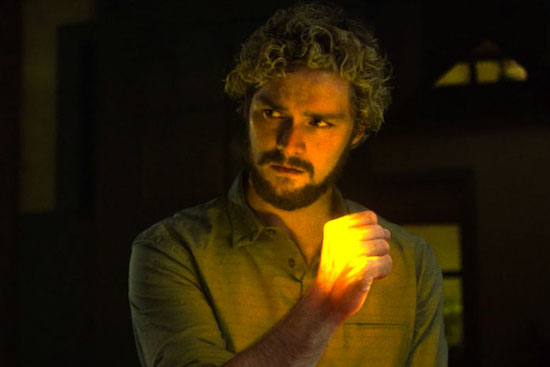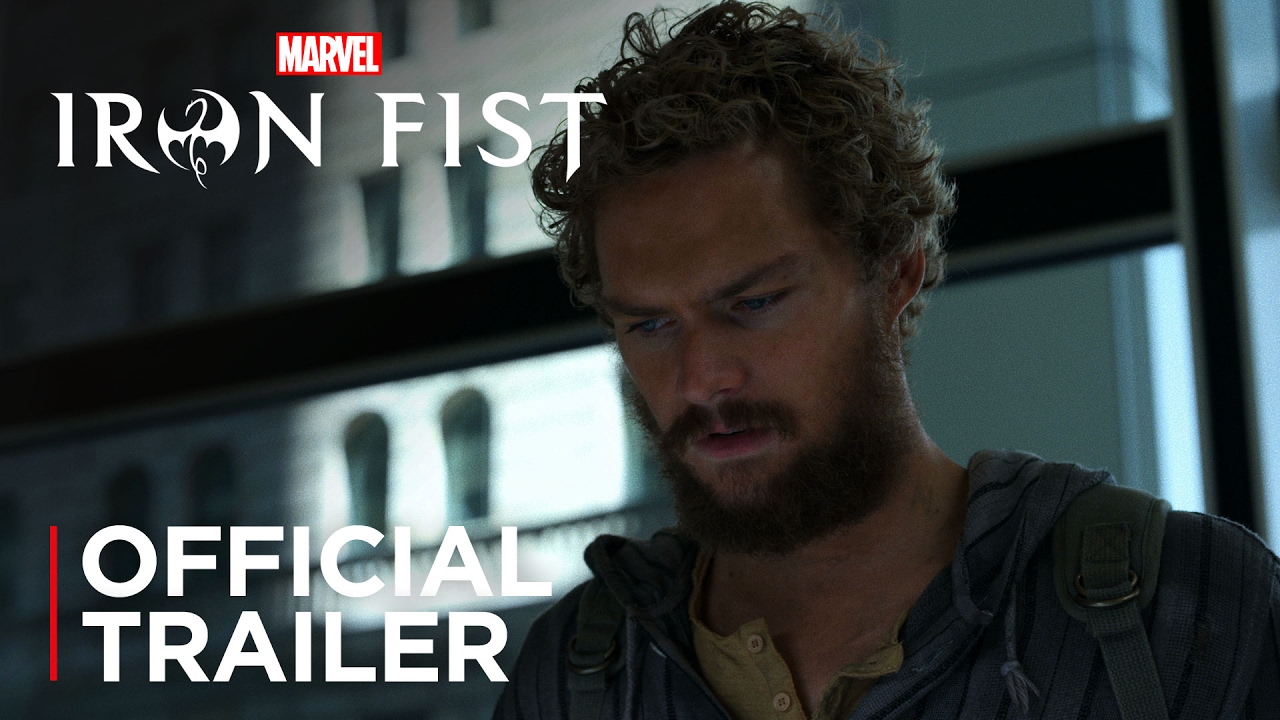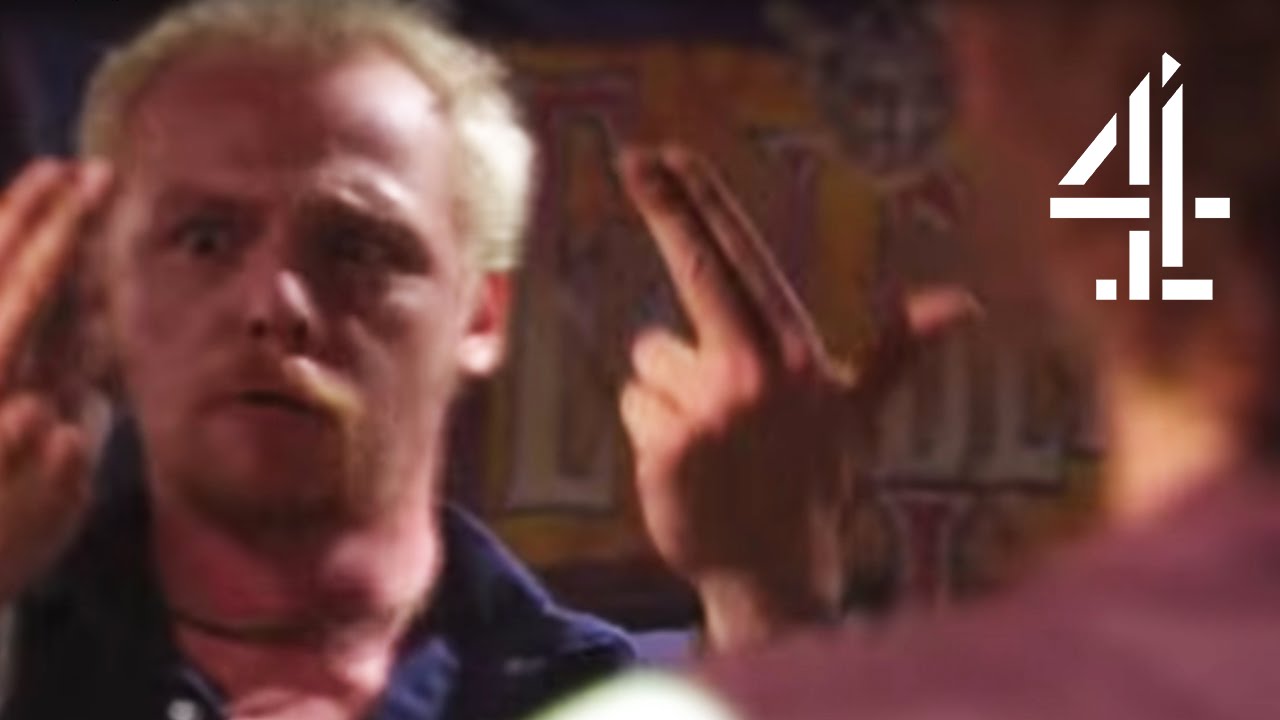In 1981, back when Marvel was a comics company, a young Frank Miller was working as the artist on Marvel’s ailing Daredevil title. Sales were terrible, and the title was close to cancellation, but Miller convinced his bosses to let him also take over the writing. With basically nothing to lose, Marvel said yes.
Daredevil almost immediately became one of Marvel’s greatest critical and commercial successes. Miller stripped the title of most of its super-powered and supernatural elements and turned the character into a grim, unhinged anti-hero, a sort of martial arts Travis Bickle. The Scorsese influence was very clear, with aspects of both Taxi Driver’s operatic bleakness and the working-class grit of Mean Streets, with Daredevil’s tortured Catholic guilt strongly reminiscent of Harvey Keitel’s Charlie in the latter film.
Miller is far more famous for later works such as The Dark Knight Returns (his dystopian take on Batman), and Sin City, which eschews superheroes entirely and gives full reign to Miller’s signature blend of influences: the hardboiled writing of Raymond Chandler and Kung Fu movies. But it’s this early Daredevil work provides the basis for a succession of popular Netflix / Marvel programmes.
The recurring antagonists across the shows so far, The Hand – a Japanese crime syndicate with quasi-religious overtones – were created by Miller in this first run, as well as Stick, Daredevil’s mentor. Other characters, such as The Kingpin, already existed, but were radically re-imagined, and it’s Miller’s Kingpin that we see on screen (played brilliantly by Vincent D’Onofrio).
Miller’s politics are notoriously at the hawkish end of right-wing, and much of his work (especially the Muslim-baiting Holy Terror) makes clear that he thinks grim, unhinged anti-heroes are largely a good thing. The Netflix shows keep his milieu but tone down his sheer nastiness in favour of more sympathetic takes on their protagonists.
At some point in the late 90s, Marvel underwent a series of corporate convulsions, and began to describe itself as "the world’s number one character company". In other words, comic books were now just one strand of the business, the core function of which was to license and exploit its large catalogue of characters.
In the two decades since, probably the biggest Marvel products have been their movie blockbusters… there have been over 40 of them in that time. X-Men (ten films), Spider Man (five films), Hulk (two), Daredevil, Elektra, Avengers (three), Iron Man (three), and so on, with around a dozen more currently in production.
As popular as much of this has been, the superhero genre is now heavily saturated, and in any case, Avengers-style city-sized destruction fests are clearly beyond the budgetary scope of a recurring TV serial. While Marvel make quite a thing of all their properties being set within a single coherent universe, the Netflix shows smartly downplay the scale and spectacle, and focus more on character-based drama.
The deal Netflix made required them to produce four separate shows, based on Daredevil, Jessica Jones, Luke Cage and Iron Fist respectively, and then bring them all together in a fifth, the upcoming The Defenders.
This all started rather well. Daredevil shaved off some of Miller’s more extreme edges (a sequence from the comic featuring Daredevil sadistically forcing a paraplegic into a game of Russian Roulette springs to mind), but kept his down-beat old New York grit and blue-collar frustration. Jessica Jones was an astonishing leap forward from this, an extended domestic violence metaphor exploring co-dependency, depression and alcoholism. Luke Cage was less artistically successful, but did some really interesting cultural things, playing off blaxploitation tropes and making New York’s black music history a central feature.
Having subverted the super-hero genre to explore issues around disability, (implicit) rape survival, and racism, Netflix and Marvel have finally arrived at that most marginal yet relatable minority; a billionaire in his mid-20s back from gap year travels in China walking around barefoot and whitesplaining Buddhism to everyone.
Right from the opening shot of bare feet walking down the street, and then a pan up to see an iPod held onto a belt buckle by a rubber band, Iron Fist, a.k.a. Danny Rand (played by Finn Jones), is an enraging trustafarian bellend. Strutting around a much sunnier, shinier New York than in the previous three shows, he sneers at people who differ from him only in that they know how to shave, and tuts at western society with all the moral authority of a Banksy painting on the exterior of an expensive deli.
The show tries and fails to set him up as a valiant underdog in an early sequence where he beats the living daylights out of Rand Corporation security when they don’t believe he is who he claims to be, after being missing for fifteen years. Which is a completely dick move, when you think about it, given that he is technically their employer, and they are, in fact, doing exactly what they should be doing. The guy is an utter tool, and there are another twelve and a half hours of the show to go.
To be completely fair to all involved in the show, everything that’s wrong with Iron Fist as a character is rooted in the comic books. It’s been argued that the opportunity should have been taken to re-imagine the character a bit, and cast an Asian actor for the role. I’ve got to say, I’m not sure this would do anything to temper the crass orientalism inherent in the overall concept.
Eastern religious ideas are referenced constantly, but they’re flavour, not substance. I’m all for a bit of cultural mish-mash, as it goes, and I’m not too concerned with authenticity. But soy sauce on a Big Mac is just a rubbish idea, and that’s what we have here. Buddhism in Iron Fist is a signifier to persuade us that the billionaire Danny Rand isn’t like all the other billionaires, and can, by focussing his ch’i, become the man who can stick it to The Man. He does this by sitting in interminable board room scenes, upending his own company’s fiscal plans with bone-headed scraps of fortune cookie wisdom. Even as a life-long socialist, I almost cheered when the Rand board fired him and got back to doing things properly.
Elsewhere, he placates an angry guard dog by meditating (don’t try it at home), and summons a bird like he’s Gandalf, only with China magic. The incidental music has a wince-inducing tic of throwing in a short pentatonic riff on a bamboo flute whenever Danny gets his ch’i on; imagine this with an Asian actor in the role and tell me it wouldn’t be even more offensive.
The show’s ham-handed identity politics are as nothing, though, compared to its hideous class politics. There’s are a few sequences early on where our stripey-trousered rich kid finds himself tickled pink by the innocent wisdom of the desperately poor. "I’m guessing people think we’re pretty much alike", he says, smiling and shaking his head at a mentally ill homeless drug addict. "Special creatures", croaks the wretched figure. "Exactly", Danny affirms. BECAUSE WHO’S REALLY CRAZY? MAYBE IT’S THIS CRAZY WORLD! Danny later buys an Aston Martin.
This would all be perhaps somewhat forgivable if the show could take itself less seriously and live up to its kung-fu movie promise. But the first five or six episodes are short on the Iron Fist and long on the Leaden Five Knuckle Shuffle.
Firstly, nothing says "Kung Fu Action Thrills" less than long board room meetings about fiscal policy, and there is a lot of that. Here’s Danny heroically… um, improving the dental benefit plan for admin staff (seriously). Now here’s Danny spectacularly… er, debating the price point of a new product. I didn’t care about any of this, and it goes on and on and on.
Secondly, the action sequences are horribly under-rehearsed. Jones is a perfectly fine actor, and his fight performances improve as the series progresses, but in early episodes, he throws punches with a leisurely slowness that William Shatner would approve of.
Obviously, in a superhero show, stunt doubles abound, and editing tricks will do what a body can’t. But Kung Fu is an actual thing that actual human beings can do, and plenty of them are in the TV business. In the age of AMC’s Enter The Badlands it seems almost wilfully perverse not to cast someone who has this stuff down cold. Given that Danny is meant to be the greatest martial artist the world has ever seen, everyone else has to slow down even more, resulting in fight scenes that look like Simon Pegg and Nick Frost in Spaced.
Thirdly, and somewhat fatally, we have Coleen Wing, played by the show’s real break-out star, Jessica Henwick. Wing, a down-at-heel martial arts teacher with Samurai ancestry struggling to make ends meet, is an infinitely more interesting character than Danny Rand. And Henwick has a very solid martial arts performance background, having trained in Wushu for the BBC children’s action show Spirit Warriors back in 2009.
There’s an intriguing sub-plot involving Wing financing her dilapidated dojo by competing in illegal cage fights, taking on multiple opponents simultaneously. The fights here are frequently stunning, sickeningly visceral, crunchy stuff. It all has almost nothing to do with the main story, but it makes the main story feel like the digression. Every time Iron Fist cut away from this and back to the boardroom, I found myself wishing I was watching a Colleen Wing show instead. But Wing’s internal conflict over violating her Bushido code by competing in these fights is apparently less interesting to the writers than Danny’s arguments about money with some other rich berks.
Henwick so far outclasses almost everything else in Iron Fist, it’s painful. And it’s notable that in the wake of negative reviews, they’ve started running ads that pitch her character as the main draw. For the most part, I think the cast are not to blame. It’s just that nearly all the characters are insufferable arseholes. The Rand Corporation is in the hands of Danny’s billionaire childhood friends Ward and Joy Meacham. Ward has the sole characteristic Tight Fist, and is played by Tom Pelphrey using the ancient acting technique Iron Face. Joy meanwhile seems to exist solely to disprove nominative determinism. Their father Harold is mad, evil and stupendously wealthy, but somehow not interesting.
There’s also a Chinese fighter in a scene set in China, who performs one of the more impressive martial arts sequences in the Drunk Master style, but ruins it all by talking exactly like Russell Brand.
Despite all this, for exactly one episode, the sixth, directed by Wu-Tang Clan’s RZA, the show gets its act together, and is briefly awesome. Structured like an old school beat-em-up video game, Danny fights a series of themed opponents in a creepy multi-room temple, in a race against time to rescue the kidnapped daughter of a dying man. There are evil knife-wielding goons, an evil sexy kung-fu lady, and an evil bladed weapons guy, all under the command of returning Daredevil villain Madam Gao. It doesn’t make a lick of sense, and it’s brilliant. In the following episode, Danny thrillingly… proposes the closure of a company plant, and has an argument with a colleague about keeping workers on the payroll. Oh well, it was fun while it lasted.
As the show trundles along to its not-quite-conclusion, which leaves everything nicely set up for a second series, and also to lead in to The Defenders, you can almost see the flowchart on the writers’ room whiteboard. Despite some spectacular highs – Jessica Jones remains a brilliant piece of drama, that I’d recommend to anyone – the Marvel / Netflix project has painted itself into a narrative and contractual corner. Character X must be in place Y after undergoing development Z, in order for the next show to start up as planned. But in that process, they forgot to give Iron Fist its own reasons to exist.




